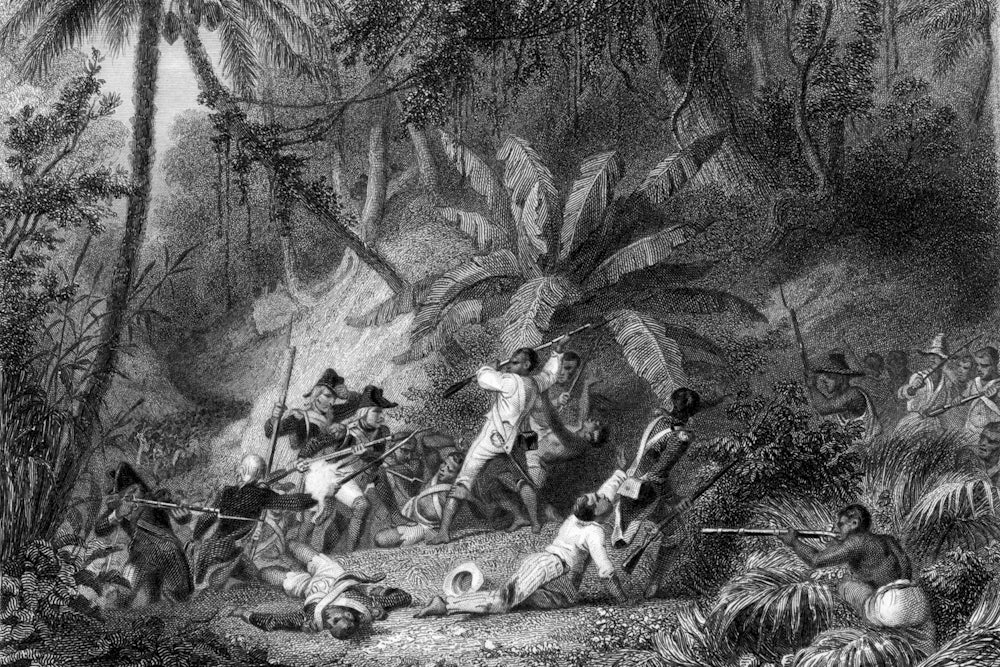It means something that UNESCO chose this day, August 23, to mark International Day for the Remembrance of the Slave Trade and Its Abolition. Beginning 200 years ago today, an army of former slaves in Haiti shook off, in succession, a local white army, the French monarchy, a Spanish invasion, a British invasion, a French invasion conducted by Napoleon’s in-law, and finally the feared Bonaparte himself. “We have dared to be free, let us be thus by ourselves and for ourselves,” roars the Haitian declaration of independence, three years before the British and Americans nominally abolished the slave trade, and about 60 years before the Emancipation Proclamation.
Eleven years after independence, Haiti’s first president, Alexandre Petion, would shelter and then supply Simon Bolivar with material support and troops to bounce back in his battles against Spanish royalists and liberate Bolivia, Colombia, Venezuela, Ecuador, Peru, and Panama. Petion aided Bolivar on one condition: that he abolish slavery in the liberated lands.
Why is UNESCO’s recognition important? The Nigerian novelist Chimamanda Ngozi Adichie once warned of the danger of allowing a single story to dominate the way we understand history. She cited the Palestinian poet Mourid Barghouti’s insight that “if you want to dispossess a people, the simplest way to do it is to tell their story and to start with, ‘secondly.’” Too often our understanding of slavery is told through this framework, where black actors come second. Just witness the outrage on the right to Michelle Obama’s indisputable comment that she wakes up in “a house built by slaves.” Or the way an award-winning biopic of Abraham Lincoln can tell the story of emancipation without a single appearance by Frederick Douglass.
What happened in Haiti is a reminder that the revolution came first—and that America is still struggling with a bad case of “secondly.”
